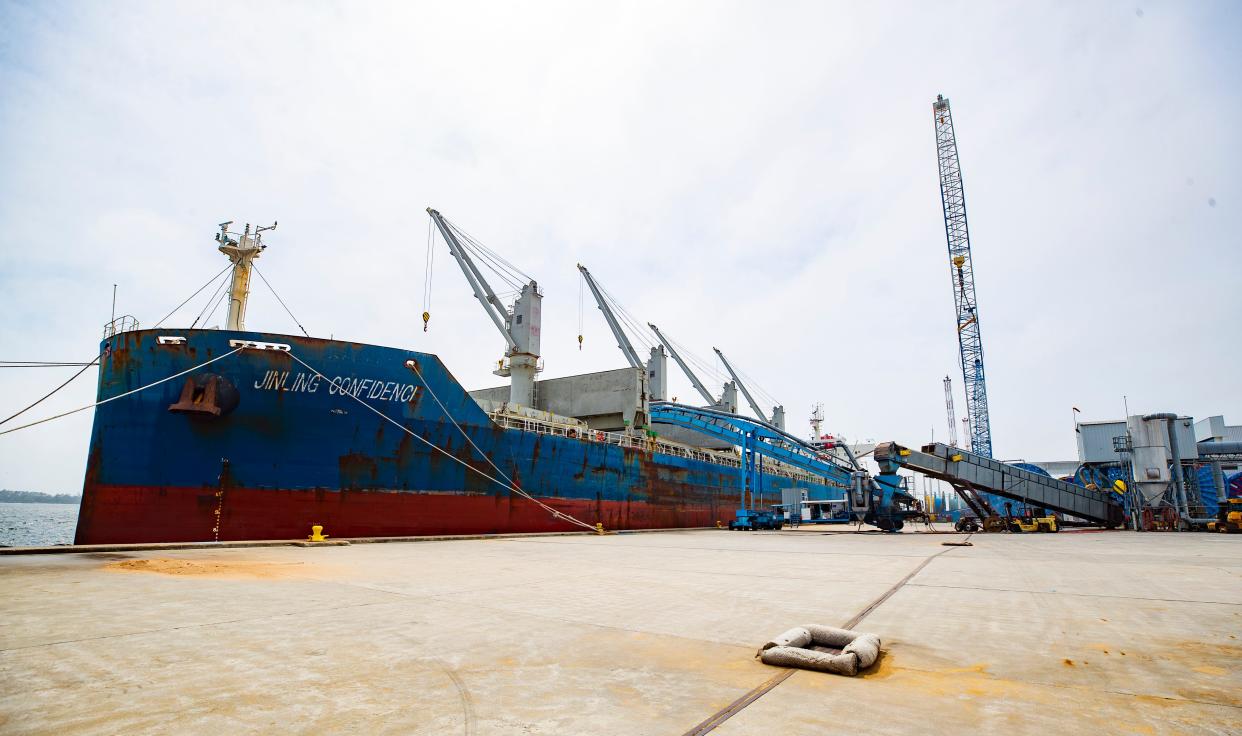Council says proposed rule on Rice's whales could cripple ports, including Panama City

PANAMA CITY − Local officials worry new proposed rules for commercial vessels might cripple ports along the Gulf Coast, including Port Panama City.
In an effort to help protect Rice's whales, a critically endangered marine mammal with an estimated population of 50 to 100, the National Oceanic and Atmospheric Administration is considering implementing a 10-knot speed limit and night-time travel ban for a region of the Gulf of Mexico. The area spans from Pensacola to Tampa Bay and includes waters 100 meters to 400 meters deep.
The plan stems from a petition submitted by the Natural Resources Defense Council, Healthy Gulf, Center for Biological Diversity, Defenders of Wildlife, Earthjustice and New England Aquarium.
"I don't know which one is weirder − the 10 knots or the no vessel movements at night," said Michael Rubin, president and CEO of Florida Ports Council. "It's going to be almost impossible for a port to run if those go into effect."
King takes over: Port Panama City picks new executive director; current director Wayne Stubbs to retire in May
New business: 'A big, big deal': Suzuki Marine USA Technical Center opens in Panama City
A news release from his group, which represents more than a dozen ports across Florida, states the ruling would catastrophically impact four ports near the zone being considered for the restrictions. They are Port Tampa Bay, SeaPort Manatee, Port of Pensacola and Port Panama City.
"It's as if NOAA wants Florida to hand up a 'closed for business' sign," Rubin said in the release. "Florida's Gulf of Mexico seaports play an enormous role in fueling (petrol) Florida, and are essential suppliers of everything from food to medical supplies, and construction materials to build homes, roads and make ongoing hurricane repairs."
The release notes Port Panama City handled more than 2 million tons of cargo in 2022, and the facility boasts a total economic value of $1.6 billion. It also supports more than 10,000 jobs, said Alex King, executive director of the local port.
Of Port Panama City's total cargo last year, King said about 1 million tons was processed overnight − a feat that would not have been possible if the proposal goes into effect.
King, who described the petition as "overarching" and a "great concern," said a restriction on night-time travel would delay the arrival of goods, some of which are perishable. He said it would make it difficult for ports within the zone to compete with others not constrained by the same requirements.
"This (might create) less investment in the ports, less economic impact and less jobs to the communities and the regions that (the ports) support," King said. "You're basically trying to force ports into daylight only vessel traffic. ... This port is an around-the-clock port."
King also said a 10-knot limit could spark safety issues. Noting the average speed of vessels navigating the Gulf of Mexico is about 12 to 16 knots, he said it is sometimes necessary for them to travel faster than 10 knots to get through rough open waters. He was not aware of any such speed limits already in effect.
Along with a 10-knot limit and night-time travel ban, the petition proposes that vessels passing through the zone report their plans to NOAA, have trained Rice's whale observers and stay at at least 500 meters away from any Rice's whales. They also are to use and operate an automatic identification system or notify NOAA of transits through the zone, and report all non-compliance to NOAA within 24 hours.
The public comment period for the proposal ends July 6. NOAA will then consider any feedback before making a final decision on whether to accept the petition. Anyone wanting to add a comment can do so by visiting https://www.regulations.gov/commenton/NOAA-NMFS-2023-0027-0001.
"We do understand that it's an endangered and threatened species, (but) there's a lot more to learn," King said. "I think that NOAA needs to really investigate and back this up with more detailed scientific studies if a vessel speed restriction is warranted."
This article originally appeared on The News Herald: Council says whale proposal could cripple Gulf ports like Panama City

